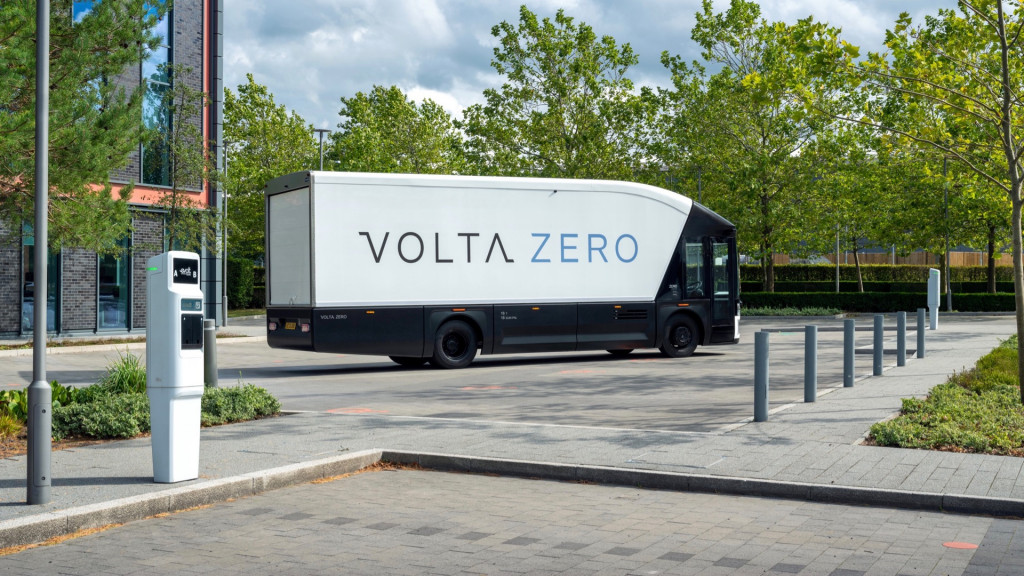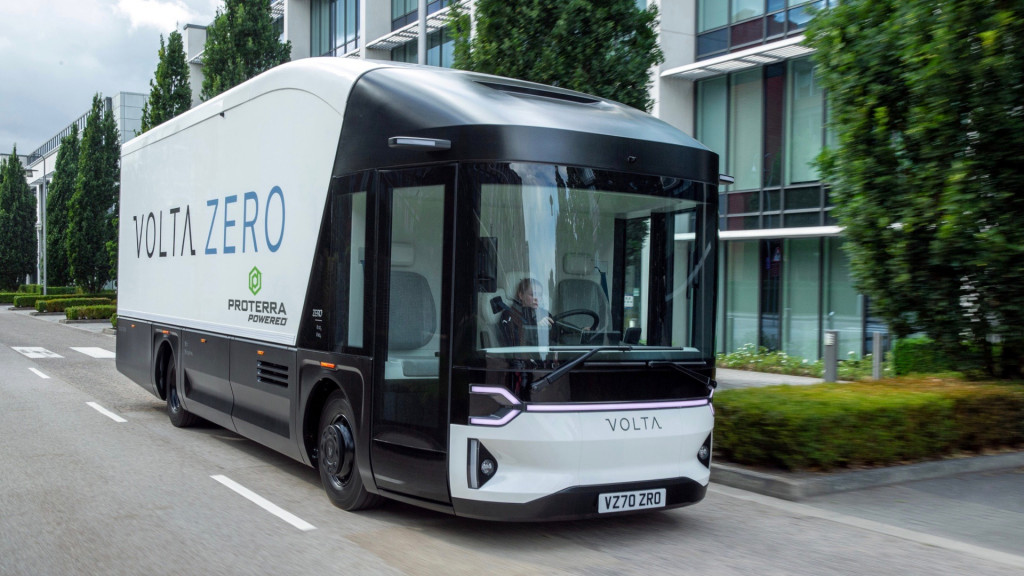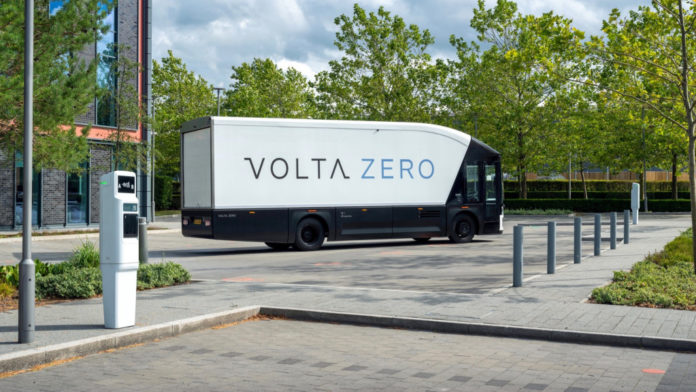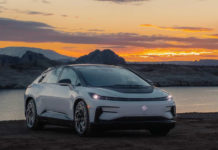Sweden-based Volta Trucks on Thursday announced plans to enter the United States market with its Zero electric commercial trucks.
The company said in a press release that it plans to \”appoint an experienced U.S.-based manufacturing partner in late 2022.\” It plans to start U.S. production with this partner in 2024-2025.
Prior to that, Volta plans to deploy a pilot fleet of 100 trucks for U.S. customer evaluation, starting in Los Angeles in 2023. They\’ll be built at Volta\’s existing contract manufacturing partner in Steyr, Austria.

Volta Zero
Those initial trucks will be Americanized versions of the Volta\’s European 16-tonne (35,000-pound) model, equivalent to Class 7 by U.S. standards. A modular battery system will offer a range of 95-125 miles, according to Volta. Trucks will have 19-kw AC charging that can add 12 miles of range in one hour, and DC fast charging that will deliver a full charge in the same amount of time, the company said.
In addition to the Class 7 truck, Volta also recently unveiled Class 5 and Class 6-equivalent models for the European market. All three share futuristic exterior styling. Volta claims that its commercial trucks afford better visibility for the driver, as it places them down at street view, with a centered seating position.
Volta also indicated that it will offer its \”truck as a service\” model in the U.S. Pitched as an alternative to traditional ownership or leasing, it gives fleet operators access to vehicles and charging infrastructure for a single monthly fee, with maintenance, insurance and driver training included.

Volta Zero
Volta\’s plans to build and sell vehicles in the U.S. aren\’t unexpected. The company has worked with U.S. suppliers for some time, sourcing batteries from California-based Proterra and e-axle units from Michigan-based Meritor.
Electric trucks will help reduce emissions, but that\’s not the only benefit. Freightliner noted that in test fleets drivers suffer from less fatigue in electric trucks. So far, though, the infrastructure for electric commercial trucks is lagging.
The grid can handle it—mostly—but megawatt-capable stationswill come more slowly than light-vehicle fast-charging stations. California is working on deploying the infrastructure to support heavy-duty electric trucks, however.









